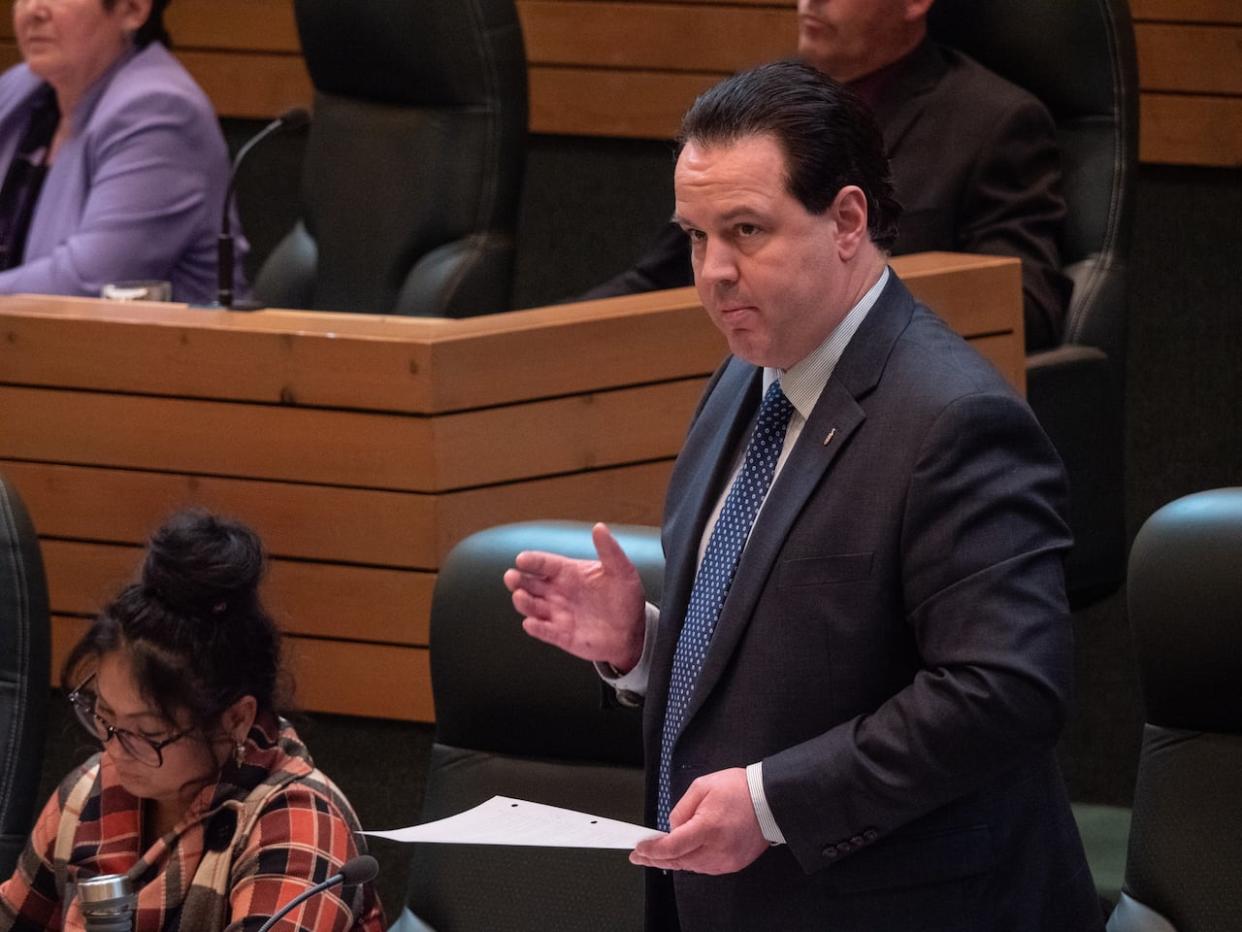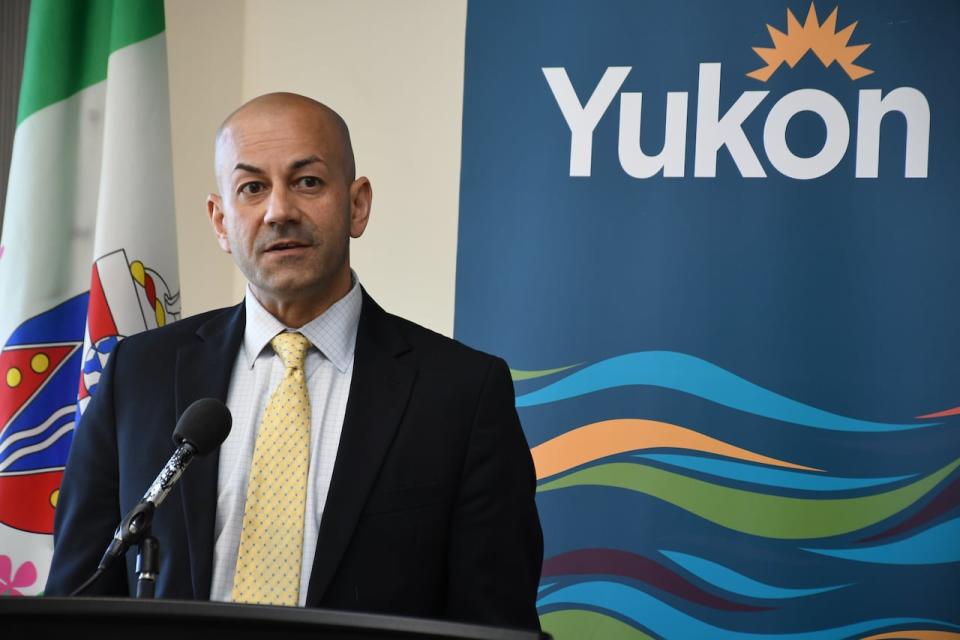Opposition wants Yukon's chief firearms officer to be appointed by territory, not feds

A Yukon Party MLA says the territory needs to protect gun owners against new federal firearm laws, and is calling on those in charge to make revisions to the territory's chief firearms officer (CFO) position.
Lake Laberge MLA Brad Cathers is the one pushing for change and says the territory's CFO should live in the Yukon and be appointed by the territory, an ask that was part of a motion calling for a Yukon firearms act, which he introduced in the legislature last week.
"This is one of the actions that we believe is necessary in response to the federal government's passing of Bill C-21," he told CBC News.
Cathers alleges that the bill is part of "Prime Minister Trudeau's intention to confiscate lawfully acquired firearms from innocent Yukoners through the so-called gun buyback program."
CFOs are federally appointed and are responsible for licensing and registration, background checks, compliance, and the licensing of firearm instructors. The Yukon and B.C. currently share a CFO but the officer lives in B.C.
Cathers said the territory's act should be "inspired" by acts introduced in both Alberta and Saskatchewan. He said that while a Yukon firearms act might not fully mitigate the problems he sees with the federal legislation, the act would be a "a step towards a bit more local control … over the how the [federal] legislation is applied in the territory, particularly as it comes down to licensing, storage, transportation and carrying of firearms."
"It's important to recognize that the vast majority of gun violence in Canada and Yukon, according to statistics, involves illegal guns, mostly in connection to organized crime and the illegal drug trade," he said.
Bill C-21 passed in December 2023, and cements a freeze on handgun sales, increases penalties for firearm trafficking and tries to curb homemade "ghost" guns. The bill includes the establishment of a committee that will review the prohibited weapons list in five years time.
At one point the bill included a ban on assault-style weapons that included any rifle or shotgun that could accept a magazine with more than five rounds — whether it actually had such a magazine or not. Gun rights groups protested this, saying it would have effectively banned a number of popular hunting rifles. After backlash, that part was dropped.

Yukon Premier Ranj Pillai has written to his federal counterparts about the possibility of a territorial CFO, but questions remain around jurisdiction. (Jackie Hong/CBC )
Premier not convinced Yukon CFO needed
Premier Ranj Pallai says he's not convinced that a CFO exclusive to the Yukon is necessary, and warns there are limits on how much provinces and territories can push back against federal legislation.
Speaking during question period on March 20, Pillai referenced the prairie provinces' acts, and questioned Cathers about whether their legislation will "stand up in a court of law."
"We need to make sure that individuals have their rights upheld and that they have the right to go out and use the appropriate firearms to hunt with," Pillai said, adding that Yukoners have already been "very loud" about needing specific considerations when it comes to the new federal laws.
But as to whether the territory can prevent some of the federal laws from being applied in the Yukon is "a very specific question about jurisdiction," Pillai said.
While the premier's office has been in communication with federal Public Safety Minister Dominic LeBlanc to arrange discussions about the possibility of a local CFO, he noted in a letter to LeBlanc that having a CFO based in B.C. "has worked well to date."
Cathers is not alone in wanting a CFO exclusive to the Yukon. Eric Shrof, executive director of the Yukon Fish & Game Association says that a Yukon-based CFO would ensure regional differences, such as the animals found near them and the appropriate guns to hunt them, are understood.
With one in four Yukoners owning a gun, Shrof says a local CFO would add an extra layer of accountability.
"The CFO role is critical for enhancing public safety by addressing illegal firearms activity and that comes right out of the Criminal Code of Canada. So as I see it having a CFO locally would help the licensed, law-abiding gun owners and would also potentially increase or improve public safety," he said.
Shrof bucked at Premier Pillai's assertion that the current set-up is working well, because the territory has never experienced the possible benefits of a local CFO.
"We don't know really whether it's worked well or whether having a local chief firearms officer might work better, and I really think we should try it," he said.


